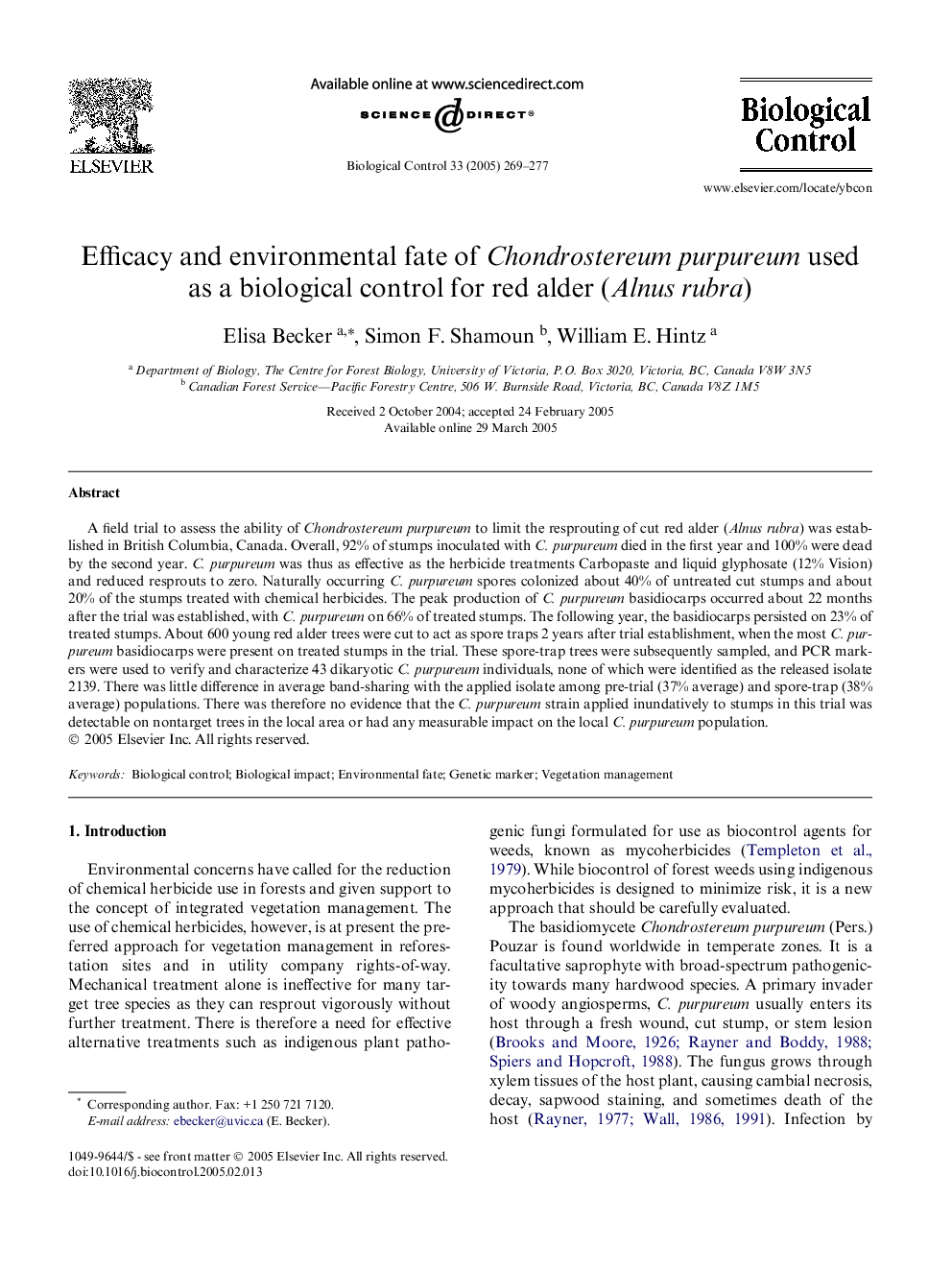| کد مقاله | کد نشریه | سال انتشار | مقاله انگلیسی | نسخه تمام متن |
|---|---|---|---|---|
| 9472107 | 1321160 | 2005 | 9 صفحه PDF | دانلود رایگان |
عنوان انگلیسی مقاله ISI
Efficacy and environmental fate of Chondrostereum purpureum used as a biological control for red alder (Alnus rubra)
دانلود مقاله + سفارش ترجمه
دانلود مقاله ISI انگلیسی
رایگان برای ایرانیان
کلمات کلیدی
موضوعات مرتبط
علوم زیستی و بیوفناوری
علوم کشاورزی و بیولوژیک
علوم زراعت و اصلاح نباتات
پیش نمایش صفحه اول مقاله

چکیده انگلیسی
A field trial to assess the ability of Chondrostereum purpureum to limit the resprouting of cut red alder (Alnus rubra) was established in British Columbia, Canada. Overall, 92% of stumps inoculated with C. purpureum died in the first year and 100% were dead by the second year. C. purpureum was thus as effective as the herbicide treatments Carbopaste and liquid glyphosate (12% Vision) and reduced resprouts to zero. Naturally occurring C. purpureum spores colonized about 40% of untreated cut stumps and about 20% of the stumps treated with chemical herbicides. The peak production of C. purpureum basidiocarps occurred about 22 months after the trial was established, with C. purpureum on 66% of treated stumps. The following year, the basidiocarps persisted on 23% of treated stumps. About 600 young red alder trees were cut to act as spore traps 2 years after trial establishment, when the most C. purpureum basidiocarps were present on treated stumps in the trial. These spore-trap trees were subsequently sampled, and PCR markers were used to verify and characterize 43 dikaryotic C. purpureum individuals, none of which were identified as the released isolate 2139. There was little difference in average band-sharing with the applied isolate among pre-trial (37% average) and spore-trap (38% average) populations. There was therefore no evidence that the C. purpureum strain applied inundatively to stumps in this trial was detectable on nontarget trees in the local area or had any measurable impact on the local C. purpureum population.
ناشر
Database: Elsevier - ScienceDirect (ساینس دایرکت)
Journal: Biological Control - Volume 33, Issue 3, June 2005, Pages 269-277
Journal: Biological Control - Volume 33, Issue 3, June 2005, Pages 269-277
نویسندگان
Elisa Becker, Simon F. Shamoun, William E. Hintz,